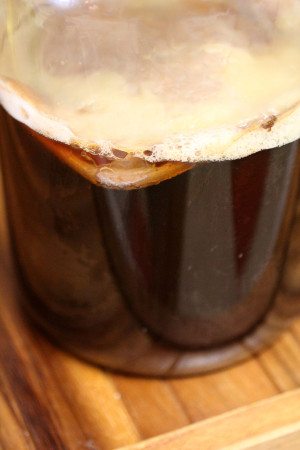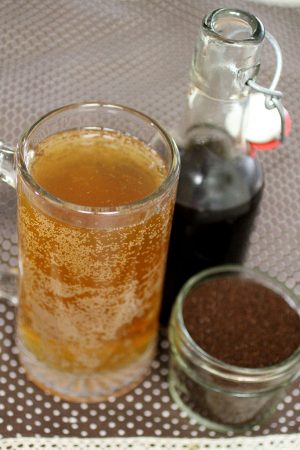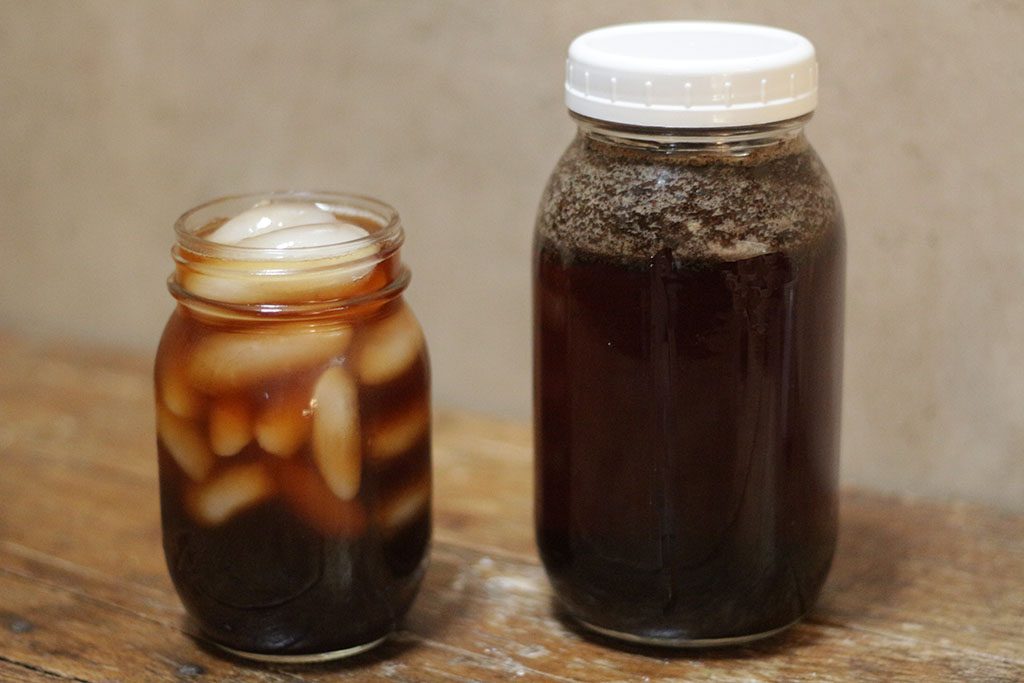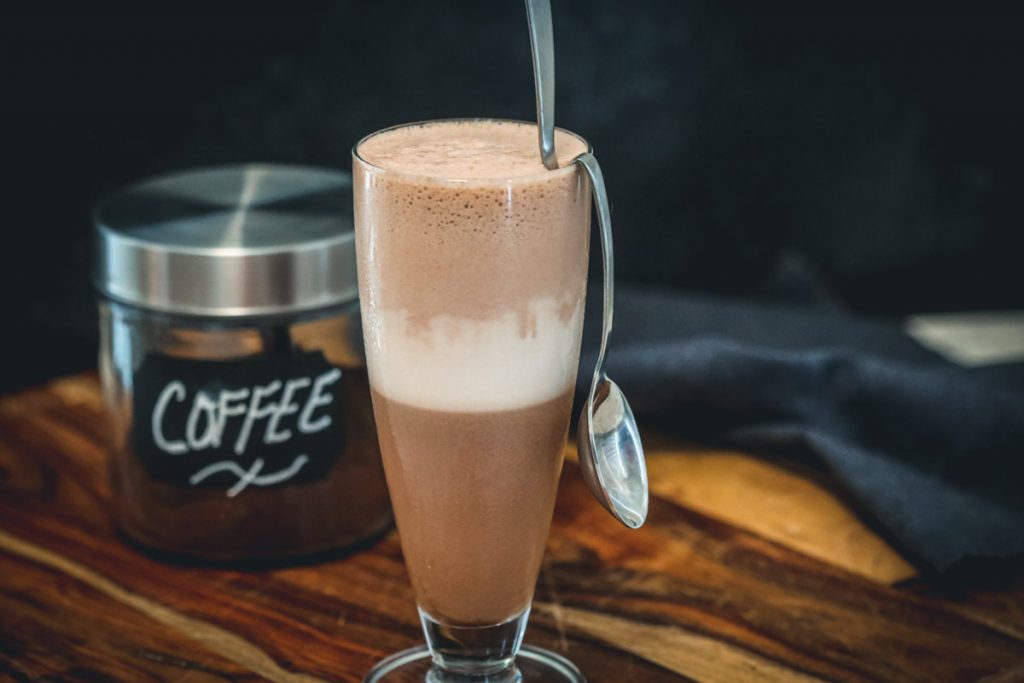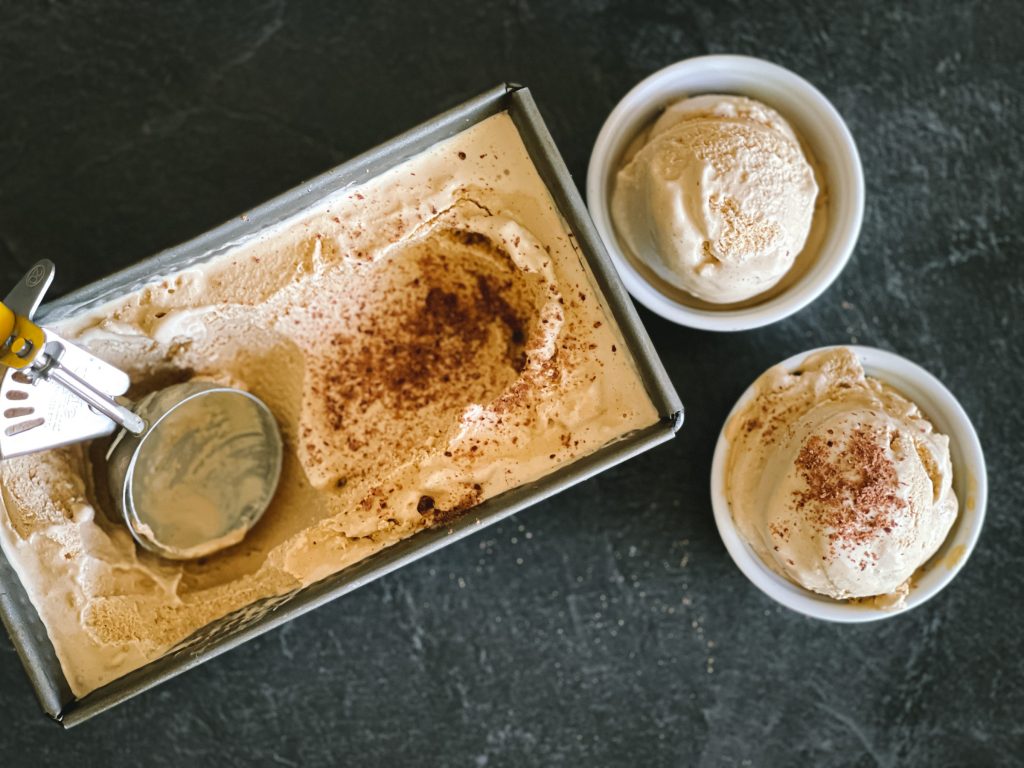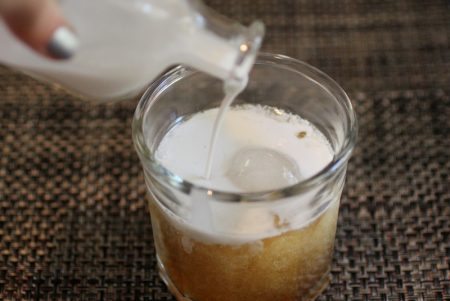
Your Microbes Love Coffee Just As Much As You Do

I love coffee, and I drink a cup every day. Some believe it’s not good for you, but I’ve gotten so many benefits from it that I just knew this couldn’t possibly be true. I have a philosophy about the foods I eat. If I eat or drink something that I know is bad for me, I can never get a positive result from it. I decided since nobody had very convincing evidence about coffee, and I seemed to get positive results from drinking coffee every day, I was not quitting my morning coffee until I had some more evidence. So leave it to my minion microbes called Bacteroides, who ferment coffee fibers and grow like crazy, to show me the way. Together we want to explain to you a thing or two about how coffee works in the gut and the benefits you can reap.
Microbes Love The Microscopic Fibers In Coffee
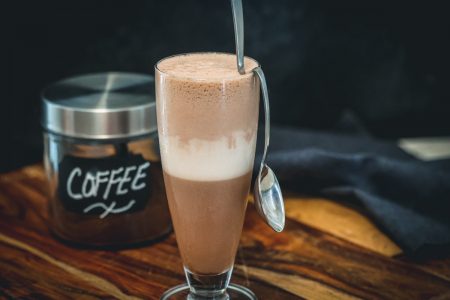
65 Percent Decreased Alzheimer's Risk
In his spectacular book Brain Maker, David Perlmutter, MD, talks about coffee and a study in Finland which followed 1,409 people between the ages of 65 and 79 for an average of 21 years. They found that those who drink moderate amounts of coffee have a 65 percent decreased risk of developing Alzheimer's 2 as compared with low- or non-coffee drinkers. He goes on to say that researchers are finding extensive evidence of protective qualities in coffee and it all begins with the microbes in the gut and the coffee fibers they ingest. These microbes can lower the risks for Type 2 diabetes, strokes, Parkinson's disease, and even cancer and cardiovascular disease.1 It does this by consuming the coffee fibers (soluble fibers) in the brown liquid and using this as fuel to grow and multiply and can shift the ratio of Firmicutes bacteria to Bacteroidetes bacteria. This shift is associated with a reduced risk for diabetes and obesity, as well as reducing inflammation.3
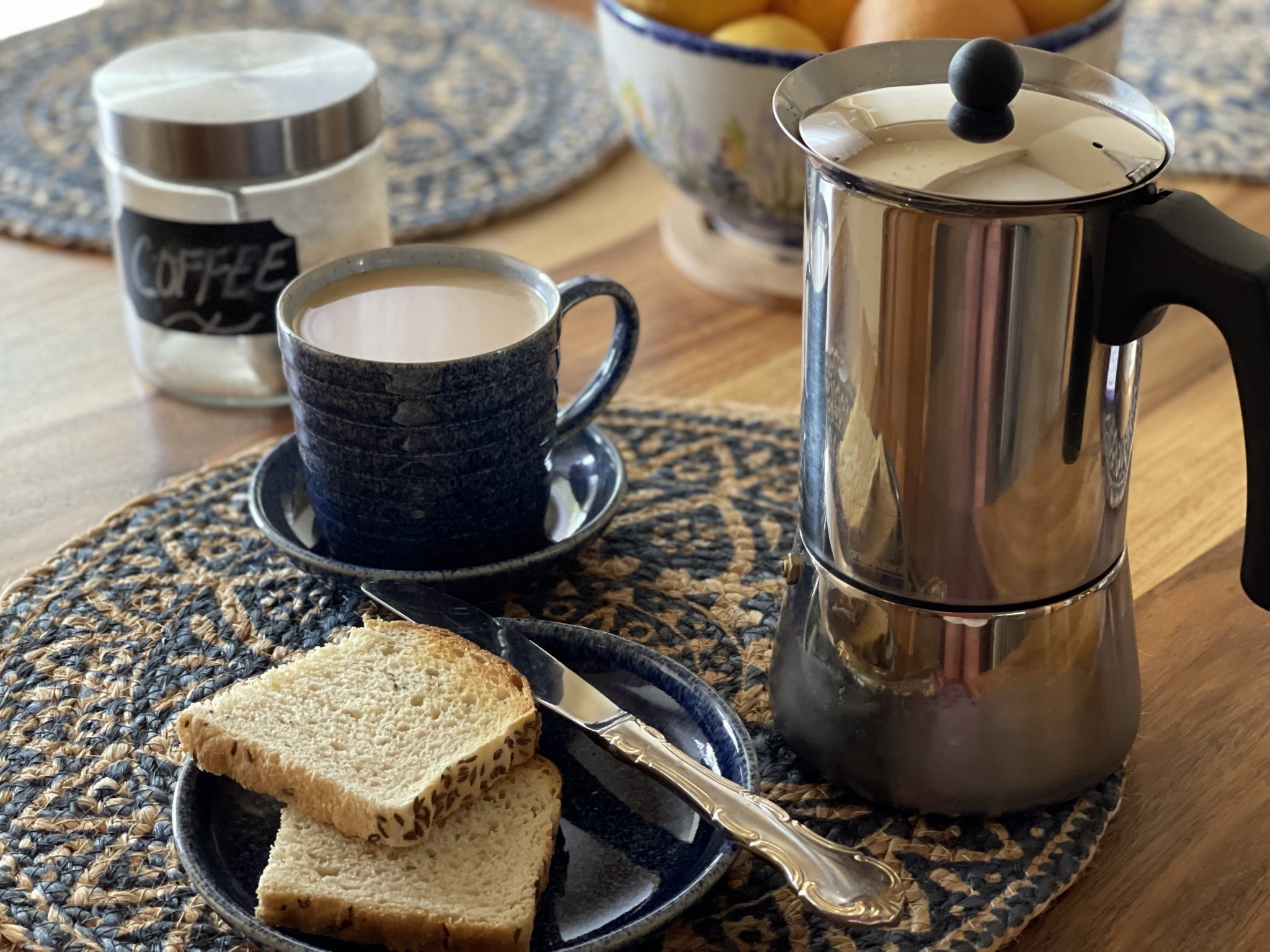
Increases a Very Important Gut Bacteria
Bifidobacterium is one of the first bacteria you get as an infant and they call it the young bacteria.[4] It comes from mother's milk and allows us to digest the milk and dominates our guts. It naturally declines as we age but we don't want this. It is so powerful that when we have lots of it, it feeds all the other bacteria in our guts. Bifido is key for digestion and is capable of breaking down milk sugar, complex carbohydrates like gluten, and fiber-containing foods in the digestive tract. Without lots of this Bifidobacterium, we age faster,[5] gain weight,[6] and lose the ability to digest foods we didn't have problems with before.[7,8,9]
There are many ways to feed Bifidobacterium in our guts, as it loves berries, apples, goat and dairy products like yogurt, kefir, seaweed, miso soup, and lots of vegetables.[10]
Surprisingly, coffee feeds this Bifidobacteria too. In this 2009 study, subjects were given 3 cups of coffee every day for 3 weeks and then tested. Levels of bifidobacterium increased, while more dominant strains were not significantly affected. [11]
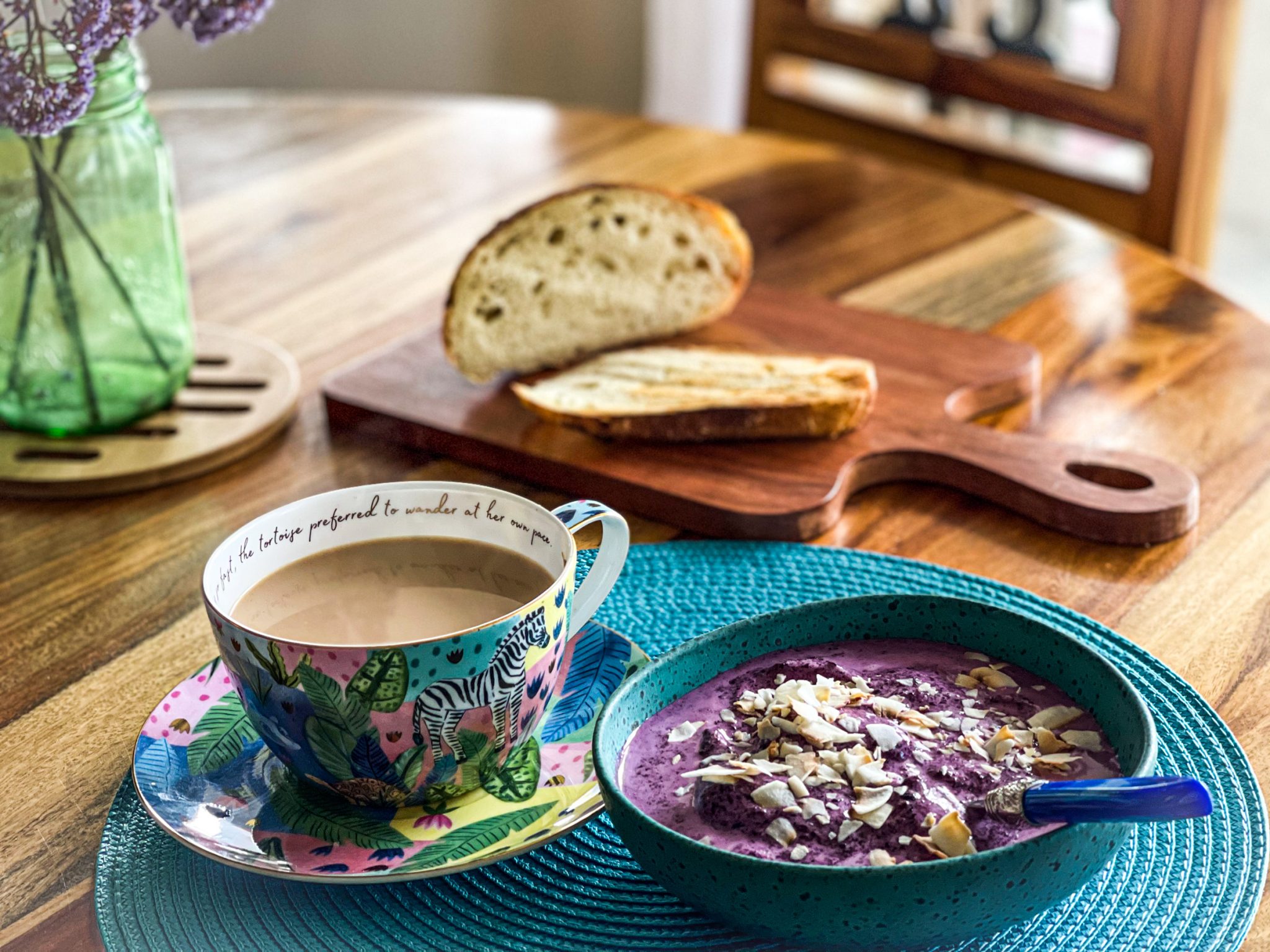
Fibers In Coffee Form A Gel In The Gut
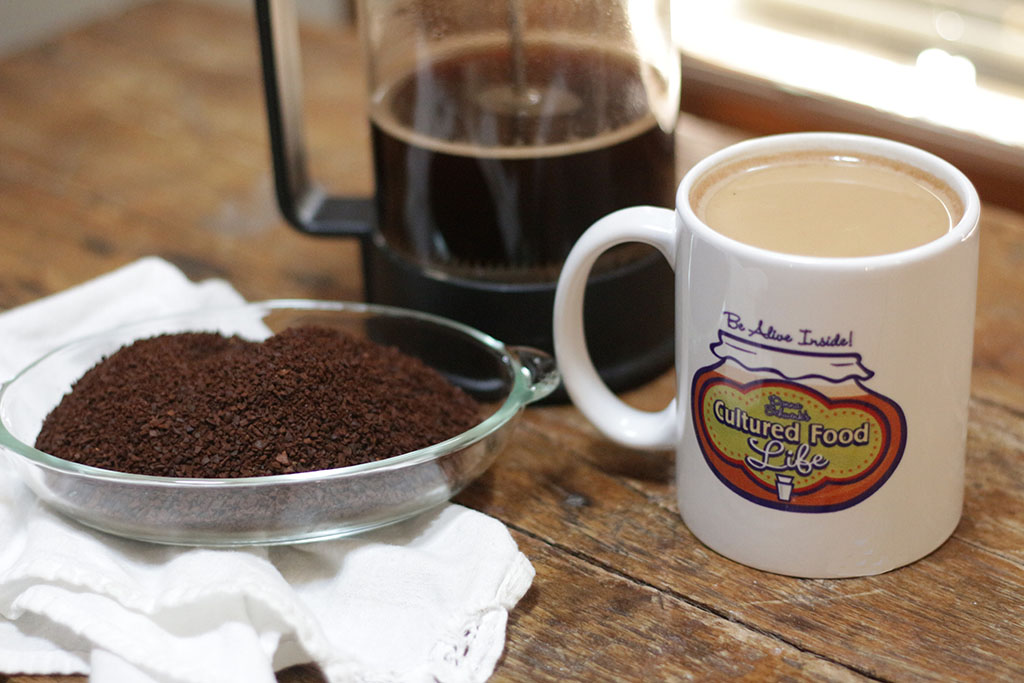
I have found that drinking coffee makes me feel full and satisfied for hours. I never understood why this was until now. Researchers found that the (prebiotic) soluble fibers in coffee form a gel in the gut that makes you feel full and satisfied. It's so important to have lots of fiber. You can't digest it, but your bacteria can and it helps your good bacteria grow and flourish. Microbes in your gut, which are estimated at over 35,000 distinct species, are nothing less than superheroes. They aid in digestion, create a physical barrier against pathogens in your gut, and work as a detoxification machine by helping you eliminate toxins all day long.
My Favorite Coffee
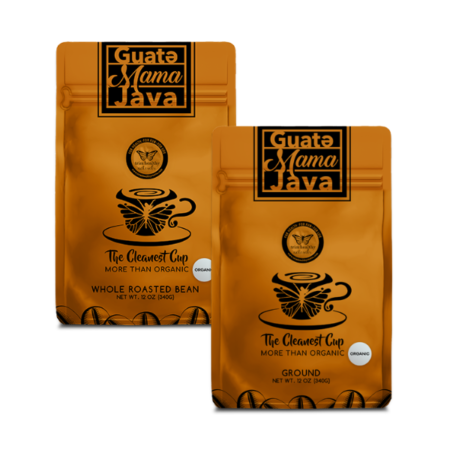
Imagine two courageous mamas soaring by helicopter to a secluded Guatemalan mountain village, nearly 8,000 feet up, where no main road leads. They ventured through untouched, pristine lands to bring back coffee like no other. This pure, mountain-grown coffee, nurtured with generations of love and devotion, is vibrant in antioxidants, gentle on the tummy, and low in mycotoxins. If you’re craving a rich, clean, and truly special cup, GuateMama Java is the one!
Coffee from this region is renowned for the least mycotoxins. The high altitude inhibits the growth of mold and fungus. Yes, it is certified organic but it is far more than that. Much organic coffee is grown in low lands where all vegetation is stripped and artificial shade is used all to make a quick coffee buck. GuateMama Java is grown with the honor of generations. It is tended and cared for by beautiful families who pour love, heart, and soul into their own little piece of the mountain and their own little plot of coffee. Get the Coffee
Fun Recipes Using Coffee
So now the microbes I love so much are loving my coffee, too. Now I know why I am so drawn to it and can now enjoy it and feed my microbes as well. I am finding many ways to enjoy my coffee and this includes in my kombucha.
There are a lot of ways to enjoy coffee. We have some fun recipes using coffee in kombucha and water kefir and a few other recipes, too. If you like the taste of coffee, then you will love this Coffee Kombucha. Don't worry, if you don't drink coffee, I have alternatives for you - Faux Coffees. We could never figure out why Coffee Kombucha was so bubbly and now I know it's the fibers in coffee that make the bacteria minions grow like crazy, producing more carbonation. Coffee and microbes are great company and will strengthen your gut in ways you never imagined.
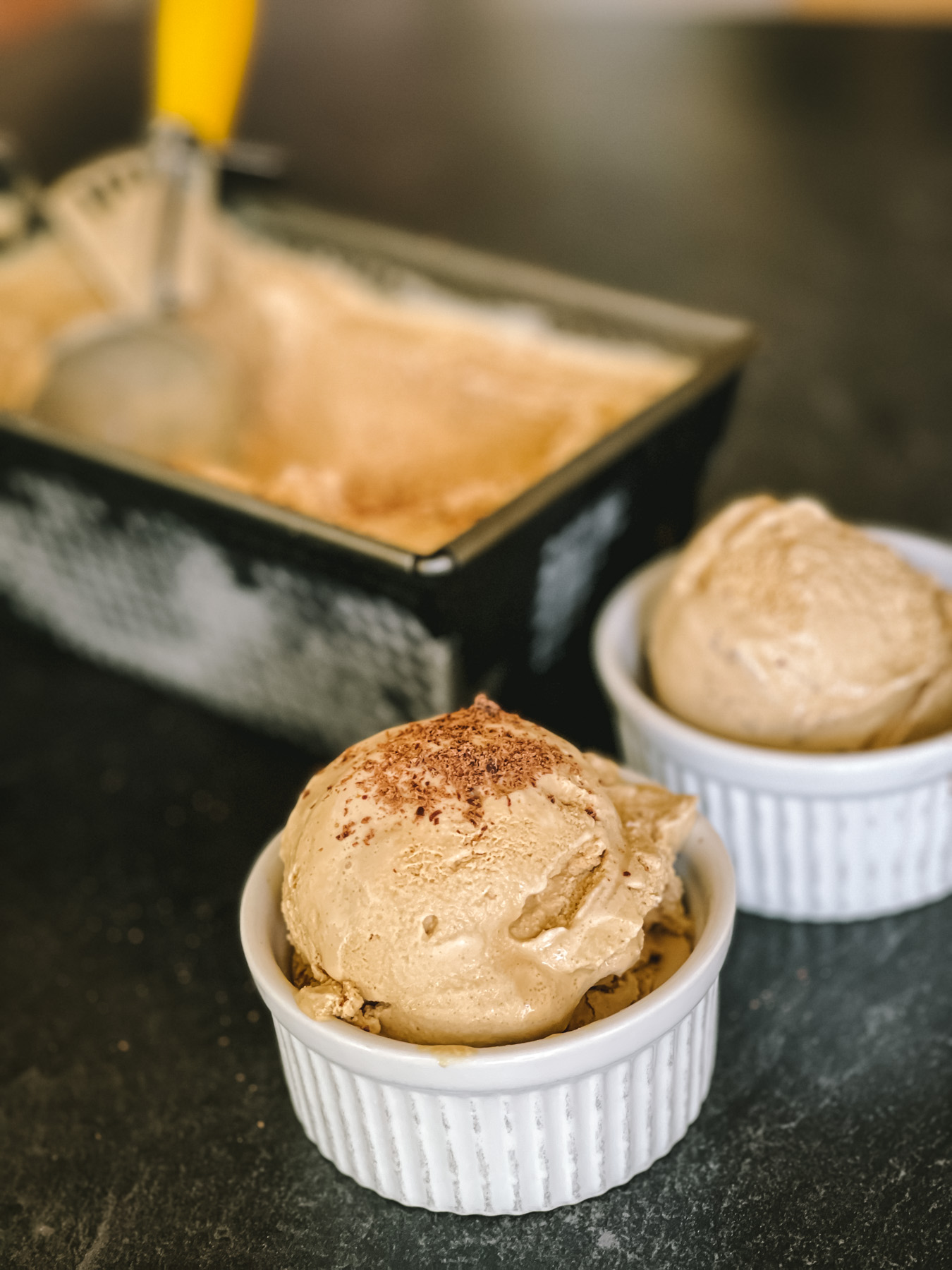
Listen To My Podcast
If you love coffee, you're not the only one. Microbes love the microscopic fibers in coffee too. Learn more about microbes and coffee and how they can reduce your risk of Alzheimer’s, diabetes, obesity, and more!
References:
- https://pubmed.ncbi.nlm.nih.gov/19217682/Janet Raloff, "A Gut Feeling about Coffee,"ScienceNews, July 26,2007.
- M.H. Eskelinen et al.,"Midlife Coffee and Tea Drinking and the Risk of late -Life Dementia: A population- Based CAIDE Study,"J.Alzheimers Dis. 16,no.1 (2009): 85-91, doi:10.3233/JAD-2009-0920.
- M Jaquet et al., " Impact of coffee Consumption on the Gut Microbiota: A Human Volunteer Stud, "J. Food Microbiol.130, no.2 (March 31, 2009) : 117-21, doi:10.1016/j.ijfoodmicro.2009.01.011,Epub January 23, 2009.
- https://www.ncbi.nlm.nih.gov/pmc/articles/PMC4990546/
- https://www.ncbi.nlm.nih.gov/pmc/articles/PMC5486783/
- https://www.ncbi.nlm.nih.gov/pmc/articles/PMC6081611/
- https://pubmed.ncbi.nlm.nih.gov/17927751/
- https://www.ncbi.nlm.nih.gov/pmc/articles/PMC2453197/
- https://www.beyondceliac.org/research-news/probiotics-role-celiac-disease/
- https://microbewiki.kenyon.edu/index.php/The_role_of_Bifidobacterium_longum_in_a_healthy_human_gut_community
- https://pubmed.ncbi.nlm.nih.gov/19217682/
Are you on the list?
Sign up today and I'll send you my free Getting Started Guide!
Each week I'll send you updates, tips, recipes, and more! You might even be a winner of my weekly giveaway! (starter cultures, memberships, and more!)
Come be a part of my cultured food family!



